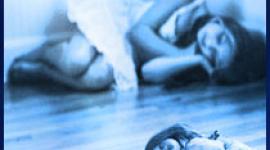Over-Exercising: What Happens When Exercise Goes Too Far?
Killer Workout
The virtues of dieting and physical fitness pervade our consciousness. But either can go too far, leading to self-starvation or compulsive exercising--or both. In fact, one may actually cause the other, warns W. David Pierce, Ph.D., of the Sociology and Neuroscience faculties at the University of Alberta. Here, he discusses a dangerous and increasingly pervasive phenomenon called "activity anorexia."
Nancy K. Dess: What is activity anorexia?
W. David Pierce: Activity anorexia is a problematic behavior pattern in which a drastic decrease in eating causes progressively more exercise, which further reduces eating, in a vicious cycle.
NKD: How have you studied this in the laboratory?
WDP: In a typical experiment, rats live in a cage with a running wheel. At first, they can eat and run freely. Then they are shifted to one daily meal. Rats with no chance to run stay healthy, but rats allowed to run develop startling effects: Their running increases from hundreds to thousand of revolutions per day, and their eating decreases. Not all rats develop this pattern to the same degree, but many would die if it continued.
NKD: Why does this happen?
WDP: Consider Darwin's theory of evolution through natural selection. Animals would have gained a survival advantage by migrating when food was scarce, and by staying on the move until an adequate supply was found. A trek moved them away from famine and increased the odds of finding food--and surviving to pass on this trait.
We've shown that as food becomes scarce, rats, especially females, will work harder to earn a chance to run. Thus, events in the distant evolutionary past can be traced to a behavioral reinforcement process.
NKD: How does that play out for humans in contemporary culture?
WDP: Our culture brings dieting and exercise together. Current cultural values of thinness and fitness ensure that many people--especially women--receive social reinforcement for dieting and exercising. At some point, for some people, the eating/activity mechanisms begin to operate independently of culture. Their original goals or motivations become irrelevant.
NKD: What about anorexia nervosa, which is clinically diagnosed on the basis of extreme thinness, fear of fat and distorted body image. How is that related to activity anorexia?
 WDP: Professionals' definitions make them sound completely different, but they may not be. The diagnostic criteria for "anorexia nervosa" focus on what people think and feel--about themselves, their bodies, and so forth. Activity anorexia is about what people do--how much they eat and exercise. My colleagues and I have argued that most cases diagnosed as anorexia nervosa, a "mental illness," are actually cases of activity anorexia, a problematic behavior pattern. You see, what people consciously think can be misleading.
WDP: Professionals' definitions make them sound completely different, but they may not be. The diagnostic criteria for "anorexia nervosa" focus on what people think and feel--about themselves, their bodies, and so forth. Activity anorexia is about what people do--how much they eat and exercise. My colleagues and I have argued that most cases diagnosed as anorexia nervosa, a "mental illness," are actually cases of activity anorexia, a problematic behavior pattern. You see, what people consciously think can be misleading.
NKD: For example?
WDP: A Canadian woman denied exercising but said she liked to walk. When asked where she walked, she replied, "To..."
NKD: Cleveland.
WDP: Basically, yes. To the mall--five kilometers away, four or five times a day. She didn't think of it as exercising. So careful assessment of actual behavior, in addition to what people think or feel, is critical.
NKD: But does it really matter how we define the problem?
WDP: I think so. Of those receiving a diagnosis of anorexia nervosa, between 5% and 21% will die. If eating and exercising are central to the problem, then more attention should be focused on these behaviors. Specifically, sudden changes in exercise or eating--"crash" dieting--are warning signs, at least as important as a desire to be thin. Understanding this problem fully is key to figuring out how to prevent it or treat it effectively--which is literally a matter of life and death.
next:
APA Reference
Gluck, S.
(2009, January 11). Over-Exercising: What Happens When Exercise Goes Too Far?, HealthyPlace. Retrieved
on 2026, March 4 from https://www.healthyplace.com/eating-disorders/articles/over-exercising-what-happens-when-exercise-goes-too-far



